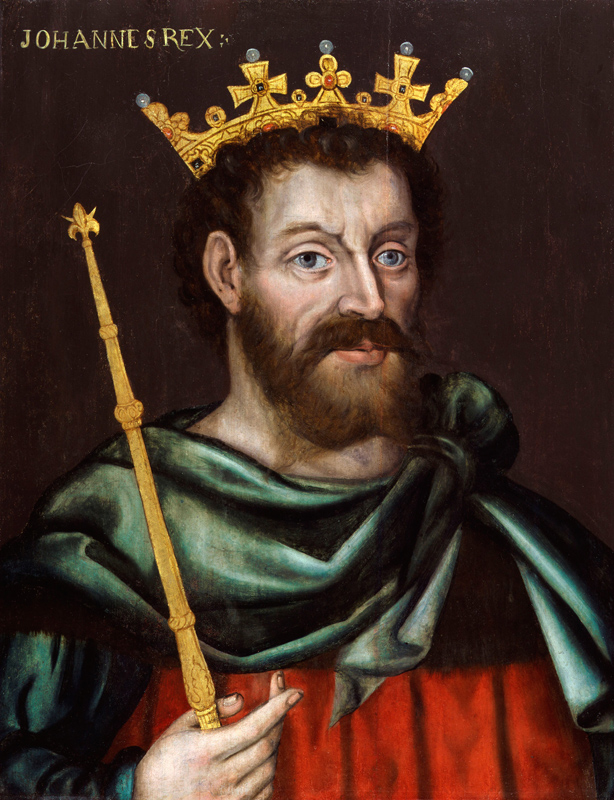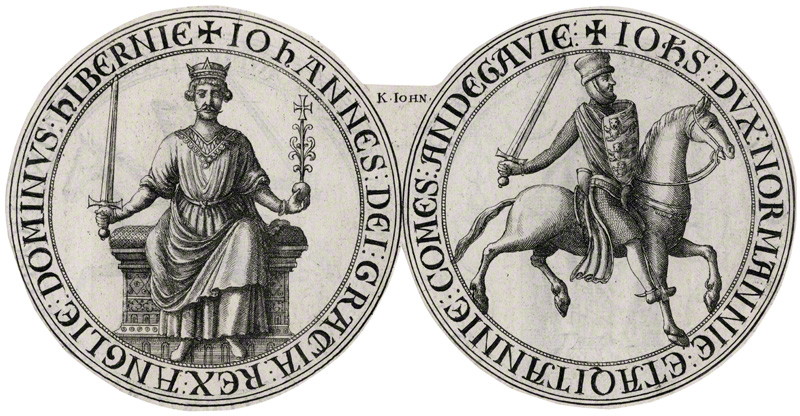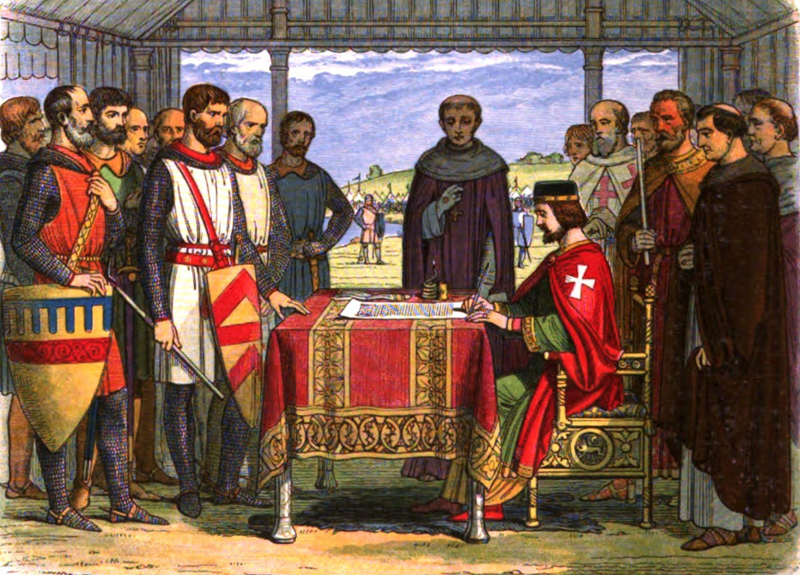One of the most important developments in parliamentary democracy was the creation of Magna Carta in 1215.
The sealing of Magna Carta (the Great Charter) by King John took place at Runnymede near the River Thames in England. Magna Carta began as a peace treaty when King John sought to appease his rebellious barons by agreeing to limit his own powers and accept that all people (including the King) were to be equal before the law.
Magna Carta informed the early evolution of Parliament and, as later medieval Kings reissued or affirmed its principles, it slowly came to be accepted as the basis of English common law. Its most enduring principles have influenced key Canadian documents, including the Royal Proclamation of 1763 that influenced British relations with Indigenous peoples, and the Canadian Charter of Rights and Freedoms, entrenched in the Constitution Act, 1982, that provides fundamental guarantees to all citizens under the law.
Canada's parliamentary system of government, both federally and provincially, is a testament to the impact and legacy of Magna Carta and its foundational role in the evolution of justice, law, and democracy across the world.



The oldest functioning parliamentary institution in the world is the Althingi of the Republic of Iceland. The Althingi was established in 930 C.E., when Iceland's leading chieftains met at Thingvellir (the Parliamentary Plains) to discuss laws and justice. Many would venture from across Iceland to attend the Althingi, which was usually held annually. Over the centuries, the Althingi lessened its law making capacity in favour of its judicial role as royal authority from Europe, namely Denmark, increased its control over Iceland's governance.
Abolished in 1800 and replaced with the High Court in Reykjavík, the Althingi did not reconvene until public pressure prompted the Danish King to decree that the Althingi be reinstated in 1843 as an assembly of royally appointed and elected members, although only wealthy males over 25 years of age could vote. Once the Danish King resigned his powers and parliamentary governance began to take root in Denmark, the Althingi began to regain its law making abilities, and soon voting rights were being expanded to other social groups. Since World War II, the Althingi has governed Iceland as an independent parliamentary institution and continues to form the democratic cornerstone of government in the Republic of Iceland.
For more information on Iceland's parliamentary system, visit the Althingi website.
